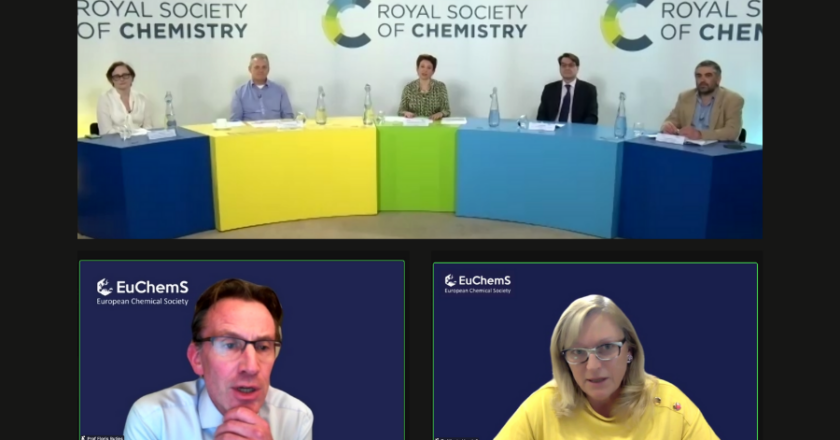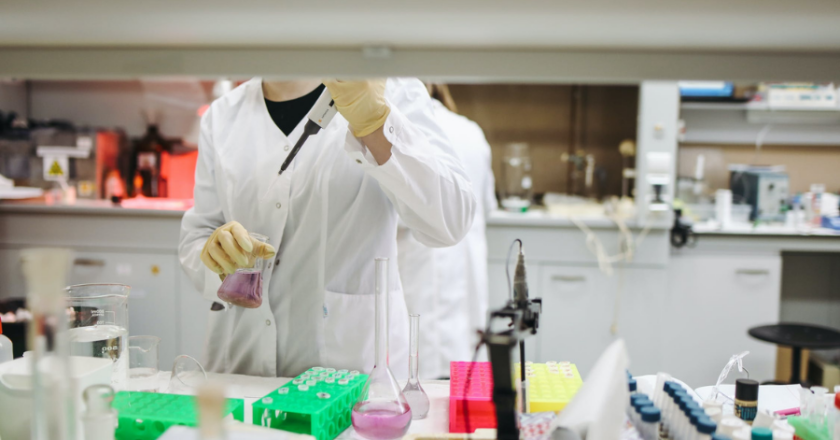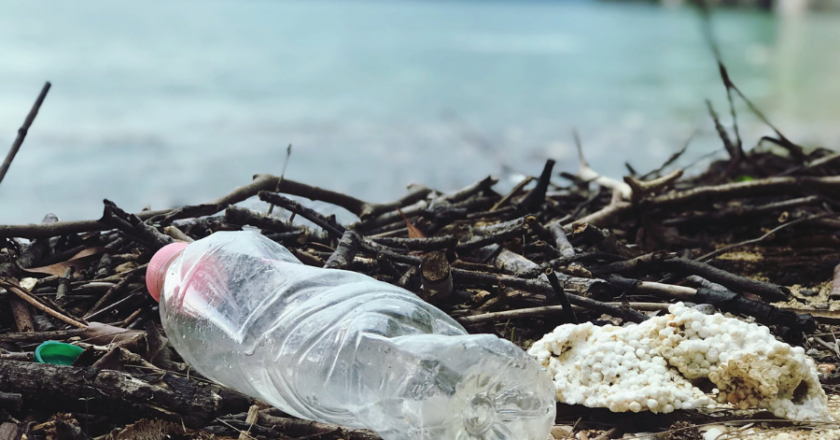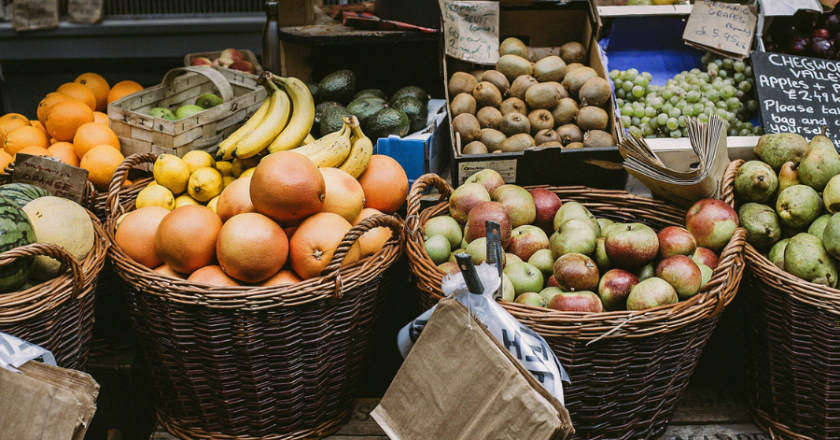Organised by Chemistry World
22 February 2022
Online
Website: https://bit.ly/3gKYfop
Thieme WebCheminar #1: Click Chemistry
Organised by Thieme Chemistry
22 February 2022
Online
Website: https://bit.ly/3Hz35Rj
Workshops: Digitalisation of the energy system
Organised by the European Commission
16 February 2022 – 3 March 2022
Online
Website: https://bit.ly/338K1ug
2ⁿᵈ European Sample Preparation e-Conference
14 – 16 March 2022
Online
Website: https://bit.ly/3FUMPt7
1ˢᵗ Green and Sustainable Analytical Chemistry
14 – 16 March 2022
Online
Website: https://bit.ly/32XQSpN
EuChemOmetricS
24 February 2022
Online
Registration link: https://bit.ly/3LBZDb4
European Food Safety Authority (EFSA) public consultations
A number of consultations put forward by the European Food Safety Authority (EFSA) are currently open.
- Draft Scientific Opinion on “Evaluation of existing guidelines for their adequacy for the food and feed risk assessment of genetically modified plants obtained through synthetic biology”
Deadline: 16 March 2022 - Draft Scientific Opinion on “Evaluation of existing guidelines for their adequacy for the food and feed risk assessment of microorganisms obtained through synthetic biology”
Deadline: 16 March 2022 - Assessments following the clock stop on endocrine disruption properties for the active substance ethephon in the context of the pesticides peer review
Deadline: 21 March 2022
You can take a look at it all here.
EuChemS is an official accredited stakeholder of the European Food Safety Authority (EFSA).
European Chemicals Agency (ECHA) public consultations
A number of consultations put forward by the European Chemicals Agency (ECHA) are currently open.
- Call for evidence on ECHA’s report investigating whether to initiate a restriction under Article 69(2)
Deadline: 16 March 2022 - Consultations on draft recommendation for inclusion in the Authorisation List
Deadline: 2 May 2022
We invite you to take a look at them here.
EuChemS is an official accredited stakeholder of the European Chemicals Agency (ECHA).
European Commission Public Consultations and Roadmaps
A number of consultations and roadmaps put forward by the European Commission are currently open:
- Climate change – new rules to prevent methane leakage in the energy sector (Commission adoption)
Deadline: 2 March 2022 - Food labelling – revision of rules on information provided to consumers (public consultation)
Deadline: 7 March 2022 - Chemicals legislation – revision of REACH Regulation to help achieve a toxic free environment (public consultation)
Deadline: 15 April 2022 - Certification of carbon removals – EU rules (public consultation)
Deadline: 2 May 2022

EuChemS joins the call for setting up a global panel on chemicals, waste, and pollution
On 26 January 2022, the European Chemical Society (EuChemS) supported the science and policy call for setting up a global panel on chemicals, waste, and pollution at the Burlington Consensus event, organised by the Royal Society of Chemistry (RSC), and the UK Government’s Department for Environment, Food & Rural Affairs (Defra).
Floris Rutjes, EuChemS President, and Nineta Hrastelj, EuChemS Secretary General, participated remotely to this event and addressed several topics, including the need to establish an independent, inclusive, and global platform.
More information about the Burlington Consensus is available on the EuChemS website.

A summary of the many EuChemS 2021 activities
We are pleased to announce that the 2021 Yearbook is now available for download on the EuChemS website!
The 2021 Yearbook is EuChemS annual report which looks back at the activities and achievements carried out by the European Chemical Society and its Professional Networks over the year. The Yearbook explores from every angle the relevant and impactful initiatives and actions of EuChemS in 2021 in policy areas, meetings, events, as well as awards and other science communication accomplishments. This publication was coordinated by the EuChemS Secretariat team. Floris Rutjes, EuChemS President, offers in his editorial an overview of the activities of the year, highlights the many successful collaborations that ensued and gives insights on the direction to follow for the months ahead.
We invite you to read and download the EuChemS Yearbook 2021 here.

GWB2022: the final stretch
The EuChemS @ #GWB2022 webinar will take place on Wednesday 16 February 2022 (10:00 am CET) and the organising team behind this event prepared a highly interactive webinar. Attendees will be invited to get actively involved in converstion with our speakers on topics related to the leaky pipeline. Furthermore, we will provide an opportunity for the attendees to network among themselves and to share their views on the necessity to have women in senior positions in STEM with our speakers.
It is not too late to register! We are looking forward ‘meeting’ you there.
More information about the programme and the speakers is available here.

Regulations to make the EU better prepared to manage future health crises
The European Parliament endorsed the content of the agreement reached with the Council of the European Union in October 2021, which goal is to make the European Medicines Agency (EMA) more effective in tackling shortages of medicines and medical devices by increasing the powers of the EU’s medicines regulator.
Two “shortages steering groups,” for medicines and medical devices respectively will be set up and will meet not only on a regular basis, but also whenever the situation requires, such as in the preparation for or during a public health emergency. The agency will also set up a public webpage with information on shortage of critical medicines and medical devices.
During a public health emergency, sponsors of clinical trials conducted in the EU will be required to make the study protocol publicly available in the EU clinical trials register at the start of the trial, as well as a summary of the results. When a medicinal product is granted marketing authorisation, the EMA will publish product information with details of the conditions of use and clinical data received.
The aim is to better equip the EMA to monitor and mitigate shortages of medicinal products and medical devices considered to be critical to address public health emergencies.
Following the final vote in plenary, the text will be published soon in the EU Official Journal, and the regulation to increase the powers of the European Medicines Agency will come into force on 1 March 2022.
We invite you to read more about it here.

Save the date: upcoming UN environment meeting on plastic, waste and chemical pollution
The 5th United Nations Environment Assembly (UNEA-5) session will take place in Nairobi on 28 February 2022. This event will address the development of a legally binding international treaty on plastic pollution between UN countries. The objective of the treaty is to reduce the discharge of plastics into the environment by covering all stages of the plastic life cycle and by adopting a circular economy approach to plastics.
Chemical pollution is an urgent, critical issue with harmful effects such as biodiversity loss and climate change. A recent study has shown that chemical pollution has crossed a planetary boundary, which means that chemicals are a serious problem disturbing the Earth’s systems, and large scale or irreversible environmental changes could arise. the management of chemicals and plastic pollution is poor and because of this, it is threatening critical systems that we depend on.
The study shows that plastics and pesticides production trends have grown, and it is expected that this production will continue to rise. The UNEA-5 is expected to tackle plastic pollution over its entire lifetime, so that the system so it becomes more sustainable and less likely to threaten the planet.
We invite you to read more on the UN Environment Assembly (UNEA-5.2) here and more about the recent study on chemical pollution here.

New very high concern substances added to the ECHA Candidate List
The Candidate List of substances of very high concern has been recently updated and it includes 4 new substances. One of the four substances has hormone-disrupting properties in humans and is used in the cosmetic industry. Two of the substances are used as rubbers, lubricants, and sealants, and have been added into the list because of their adverse effects on fertility. The fourth one has been described as a harmful chemical for the environment due to its persistent, bio-accumulative, and toxic effects.
The list, developed by the European Chemical Agency (ECHA), now contains 223 entries for chemicals (or groups of chemicals) that can harm people or the environment. The inclusion of any chemical substance in the list means that its use is forbidden unless a company receives authorisation from the European Commission. Companies have legal obligations if any of the chemical substances from the Candidate List is included in their products. Suppliers, importers, and producers of articles containing a Candidate List substance > 0.1 % (weight by weight), must notify ECHA under the Waste Framework Directive, within six months from the date it has been included in the list. They must also provide sufficient information to customers and consumers to allow safe use (in the form of a safety data sheet).
We invite you to read more about it here.

Joint meeting of European Parliament committee to address the Farm to Fork strategy
The Committee on the Environment, Public Health and Food Safety (ENVI) and the Committee on Agriculture and Rural Development (AGRI) have recently held a joint public hearing on “The impact of the Farm to Fork Strategy on agriculture and food systems.” The aim of the hearing, which was comprised of two panels, was to discuss the actual impact of the Strategy, its links to other policies and the way forward to a sustainable food system.
The first panel focused on the general impacts of the Strategy as assessed by the American Economic Research Services and the Wageningen University and Research Centre. Some of the conclusions of their assessment are that achieving the EU’s Green Deal objectives may lead to a reduction of livestock production in the order of 10 to 15% and that fertilizer surplus reduction and climate measures are likely to become main constraining factors to EU agricultural production.
The second panel, led by members from the Institute for European Environmental Policy (IEEP) and the European Agriculture Initiative at the “Institut du Développement Durable et des Relations Internationales” (IDDRI), looked at adaptation strategies. They stated that there is an urgent need to redirect policies to serve long-term sustainability goals, building a robust and strategic framework for food system resilience and a deeper accountability and engagement for change from stakeholders.
We invite you to watch the recording of this hearing here.

Circular economy: MEPs call for strengthening EU batteries regulations
On Thursday 10 February, the members of the Committee on the Environment, Public Health and Food Safety (ENVI) adopted a report on the proposal for a regulation on batteries and waste batteries.
This proposition defines a set of rules to govern the entire battery product life cycle, from design to disposal of batteries. MEPs also proposed introducing a new category of batteries: “batteries for ‘light means of transport’ (LMT)’ (e.g., batteries in e-bikes). Amongst others, MEPs call for:
- producing more sustainable batteries with minimum levels of raw materials;
- designing easy removal and replacement systems for consumers and introducing common charger standards;
- implementing global value chain standards;
- increasing the batteries waste management target to 70% by 2025.
This report was presented by MEP Simona Bonafè, the rapporteur. As a reminder, MEP Bonafè presented the new EU Sustainable Batteries Regulation during the EuChemS policy workshop on the lithium element, held on 1 December 2021. You can watch her intervention on the EuChemS YouTube channel.
We invite you to read the press release here.

European universities taking part in the solution to Europe’s major societal challenges
Two new initiatives have recently been presented by the European Commission with the aim of increasing the contribution of universities and other higher education institutions to face Europe’s major challenges such as climate change, the digital transformation, and aging population. The Commission believes that the entire higher education sector has a unique position at the crossroads of education, research, and innovation, in shaping sustainable and resilient economies, and supporting universities on the provision of high-quality life-long learning opportunities with a focus on the most needed skills and competences to face today’s economic and societal demands.
The first proposal, the European strategy for universities, proposes a set of actions to support Europe’s universities towards achieving four objectives: strengthen the European dimension of higher education and research, consolidate universities as lighthouses of our European way of life, empower universities as key actors of change in the green and digital transition and reinforce universities as drivers of EU’s global role and leadership.
The second proposal focuses on building bridges for effective European higher education cooperation, by facilitating the implementation of joint transnational educational programmes and activities, pooling capacity, and resources, or awarding joint degrees. Member states are invited to act and create appropriate conditions at national level for enabling such closer and sustainable transnational cooperation.
Read more on the next steps for both strategies here

